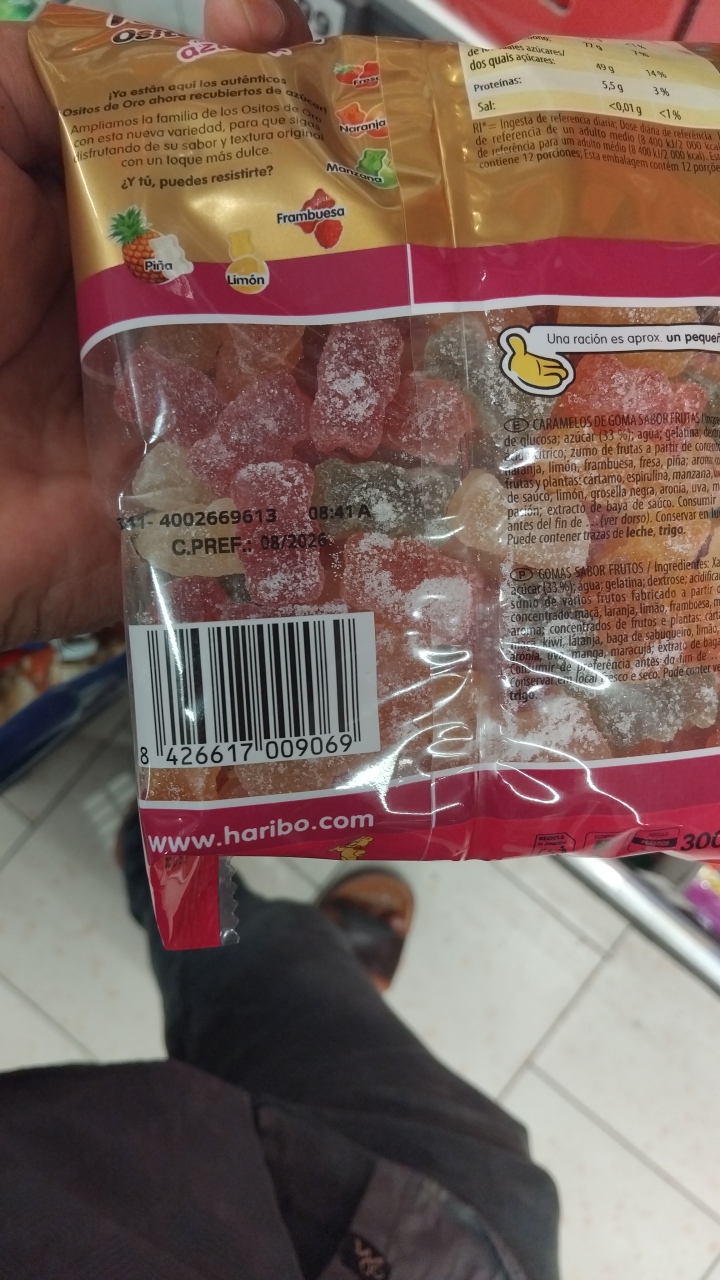
Barcode: 8426617009069
Ositos de Oro
DOUBTFUL
📝 Reason: Certain ingredients have disputed status among Islamic scholars. Their acceptability may vary by school of thought and regional certification standards.
🏷️ Category: Candy
📄 Certificates: A Portion Is Approx. A Small One, May Contain Traces Of Milk, Wheat.
Ingredients:
Details
Understanding the Halal Status of Ositos de Oro
For those seeking satisfying candy options, Ositos de Oro emerges as a popular choice. However, its halal status is doubtful. This stems from the complexity of its ingredients and the varying interpretations among Islamic scholars regarding their halal acceptability. In this article, we’ll delve deep into the ingredients and E-numbers to fortify your knowledge about this delightful candy.
Ingredients Breakdown
Ositos de Oro contains a mix of ingredients, each with a distinct status concerning halal compliance:
- Glucose Syrup: Permissible in Islam.
- Sugar: Permissible in Islam.
- Water: Permissible in Islam.
- Gelatin (E441): Its status is questionable; it requires a check for a halal logo since it can be derived from non-halal sources.
- Citric Acid (E330): Used for its antioxidant properties, it is permissible.
- Fruit Juice from Concentrate: Includes orange, lemon, raspberry, strawberry, and pineapple, all generally considered halal.
- Flavor: Usually permissible but depends on the source.
- Extracts of Fruits and Plants: Halal unless sourced from non-halal origins; includes safflower, spirulina, apple, elderberry, and others.
- Sunflower Oil: Generally halal.
- Strawberry and Raspberry: Permissible unless contaminated.
- Mango and Passion Fruit: Found in many Muslim contexts as halal.
- Dextrose: Permissible in Islam.
- Acidifying Agents: Generally permissible.
Key E-numbers Explained
E-numbers can be sources of concern for halal compliance. Here’s a quick look:
- E441 (Gelatin): It can be derived from animal sources; check for halal certification.
- E330 (Citric Acid): Plant-derived and halal.
The presence of E441 raises concerns. For a product to be fully halal, it’s imperative that the gelatin be from a halal-certified source. Ingredients like citric acid, sugar, and glucose syrup are acceptable as they pose no conflicts with halal dietary laws.
Halal Certification Context
Despite most ingredients being halal by general standards, the execution and the sourcing of these components create ambiguities. While each ingredient seems compliant, the failure to have specific ingredients like gelatin clearly labeled or certified keeps the halal status in a state of doubt. The fundamental premise of halal dictates that all components must adhere to Islamic law, which complicates the acceptance of Ositos de Oro.
The absence of clear halal certification means that consumers might still be at risk of consuming non-halal products, which can cause distress for devout Muslims. While flavors and additional extracts are usually permissible, any ingredient sourced from non-halal practices could jeopardize a product’s overall halal status.
Conclusion: Informed Choices
As you consider indulging in Ositos de Oro, remember that understanding the complexities of each ingredient is paramount. The candy exhibits a range of halal-friendly components; however, the questionable status of gelatin makes it essential for consumers to decide according to their school of thought or local regulations.
If you are mindful of dietary laws, explore alternatives that carry clear halal certification to ensure alignment with your values. As the halal landscape continues to evolve, staying informed will empower you to make choices that reflect both your taste and your faith.
